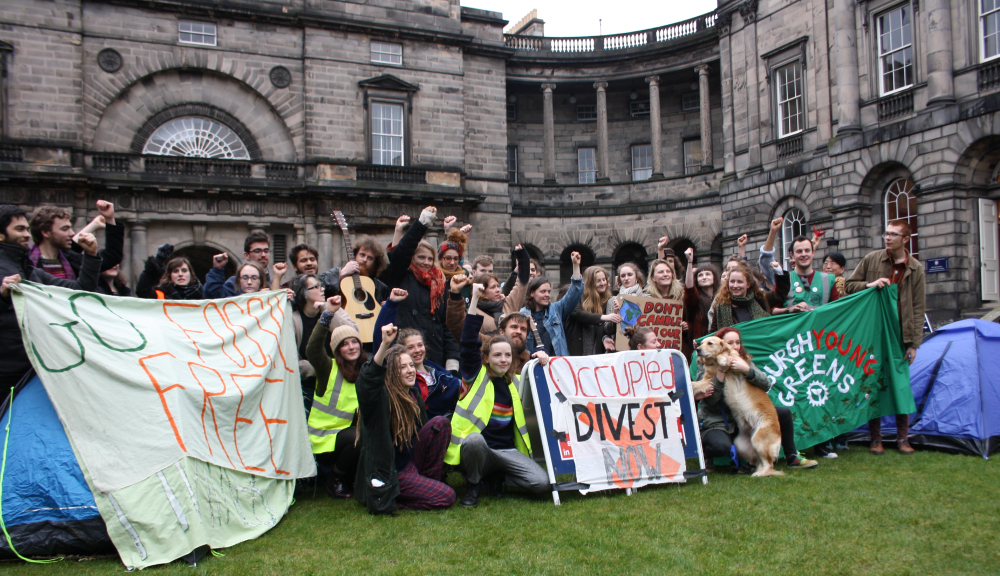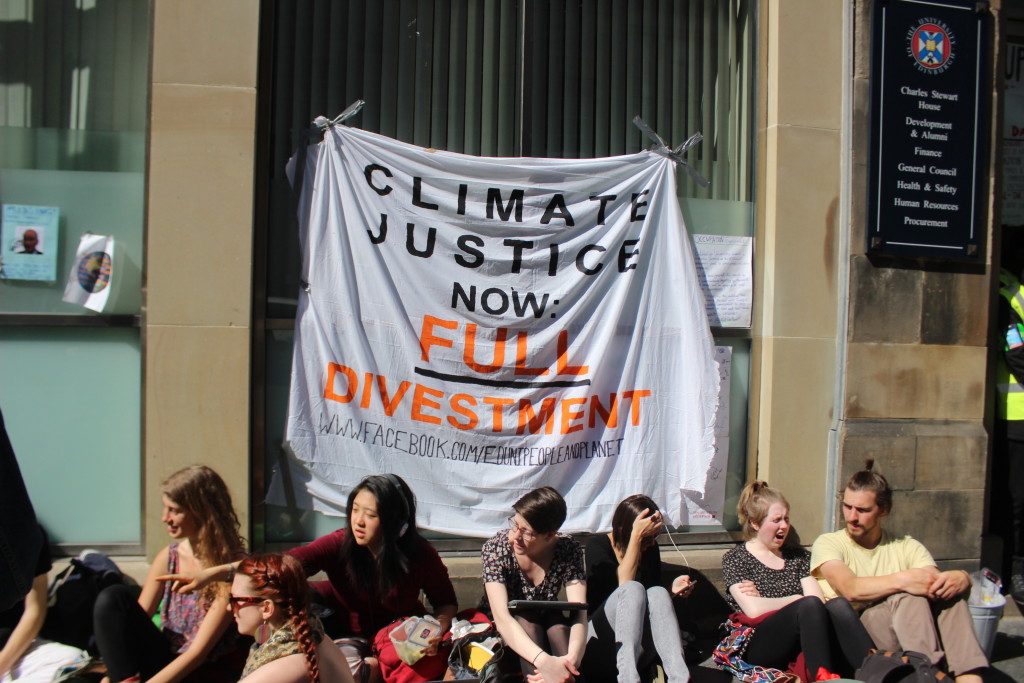Edinburgh students make divestment camp outside Principal’s Office

On the day the last coal-fired power station in Scotland shuts down, students at the University of Edinburgh have launched a protest camp demanding the end of the institution’s investments in the fossil fuel and armaments industries.
Centred outside Principal Sir Tim O’Shea’s office in the iconic Old College, the protests have been styled as an open air ‘Divestival’ featuring live music performances and mass catering.
Nuri Syed Corser, a politics and anthropology student stated “Edinburgh has the chance to join the movement for a fair transition to a renewable economy, but we have to recognise that this is only possible if the political and financial power of the fossil fuel industry is broken.”
The high profile international divestment movement has been calling upon institutions to pull their investments from fossil fuels. In recent years Glasgow University, the Rockefeller Foundation and the British Medical Association have been among a swathe of high profile victories for the campaign.

This is not the first such protest on campus, with recent actions including a blockade last month of the University’s finance headquarters Charles Stewart House. Following a ten day student occupation last May, Edinburgh agreed to withdraw its investments in coal and tar sands companies, and last month stated that it would not invest in companies which derive more than 20% of their profits from arms manufacturing. However, students are calling for Edinburgh to divest from these industries altogether, and make a clear statement denouncing these investments as unsuitable for a public body.
Michaela Sophie, an Environmental Geosciences student said, “The UK government has recently cut tax for North Sea Oil, despite its prices predicted to fall to the lowest level since 1986. We have also seen cuts to renewable energy subsidies, while solar power is on track to becoming the cheapest energy source. It is clear that now is the time for our public institutions to take real action to secure a sustainable industry which will provide jobs for its future graduates.”




Leave a Reply